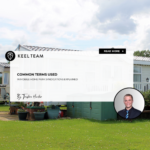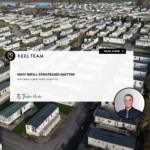Why Emerging Markets Matter for Mobile Home Park Investments
-
 Tristan Hunter - Investor Relations
Tristan Hunter - Investor Relations

Emerging markets often provide opportunities for higher returns due to lower competition and untapped demand. Mobile home park investments may thrive in areas where affordable housing is scarce, and zoning restrictions limit new development. By entering these markets early, investors may secure properties at lower costs before prices rise. However, identifying these markets requires careful research and an understanding of key indicators.
Key Indicators of Emerging Markets
To find promising areas for mobile home park investments, focus on these critical factors. Each indicator may signal a market with growth potential.
Population Growth
A growing population often drives demand for affordable housing. Areas with increasing numbers of residents, especially low- to middle-income families or retirees, may need mobile home parks. Look for regions with steady population growth over the past five years. For example, check Bestplaces.net data for markets showing a population increase. Growing populations may indicate more tenants seeking affordable living options.
Low Mobile Home Park Supply
Markets with few existing mobile home parks and strict zoning laws may present opportunities. When supply is low, demand for lots often exceeds availability, keeping occupancy rates high. Research local zoning regulations to confirm restrictions on new mobile home park development. A limited supply may create a competitive edge for existing or new mobile home parks. For instance, areas with fewer than one mobile home park per 10,000 residents may signal undersupply.
Industrial and Economic Development
New industrial projects, such as factories or warehouses, often bring jobs to an area. These jobs may attract workers seeking affordable housing nearby. Track announcements of major employers moving into a region, as they may boost demand for mobile home parks. For example, areas near new Amazon fulfillment centers or manufacturing plants may see increased housing needs. Check local economic development websites for planned projects.
Rising Rental Costs
When traditional housing costs rise, mobile home parks may become a go-to option for budget-conscious residents. Markets where apartment rents or home prices are climbing faster than wages may indicate demand for affordable alternatives. Use platforms like Zillow to compare local rental trends. A market where median rents exceed 30% of median household income may push residents toward mobile home parks.
Infrastructure Improvements
New infrastructure, such as highways, public transit, or utilities, may signal a growing market. Improved access may make an area more attractive for residents and businesses, increasing housing demand. Monitor state and local government plans for road expansions or utility upgrades. Areas with recent or planned infrastructure projects may become hotspots for mobile home park investments.
Download our FREE eBook on the Top 20 things to know BEFORE investing in mobile home parks!
Strategies to Identify Emerging Markets
Once you understand the indicators, use these strategies to pinpoint markets with potential. Combining research tools and local insights may improve your chances of success.
Leverage Online Data Tools
Use real estate platforms like Reonomy or LoopNet to analyze mobile home park listings and market trends. These tools may reveal areas with low inventory or high demand. Additionally, platforms like City-Data.com provide demographic and economic insights, such as population growth or income levels. Cross-reference this data with zoning maps to identify markets with limited mobile home park supply.
Network with Local Experts
Connect with local real estate agents, brokers, and mobile home park owners to gain insider knowledge. These professionals may know about off-market deals or emerging trends. Attend real estate investment meetups or join online forums like BiggerPockets to exchange ideas. Local insights may help you spot markets before they become widely known.
Analyze Job Market Trends
Research employment trends using sites like Indeed or the Bureau of Labor Statistics. Areas with growing job opportunities, especially in industries like manufacturing or logistics, may attract workers needing affordable housing. For example, a region with a 10% increase in job postings over two years may indicate a rising demand for mobile home parks.
Visit Potential Markets
Nothing beats on-the-ground research. Visit mobile home parks in target areas to assess their condition, occupancy rates, and amenities. Talk to residents and managers to understand local demand and challenges. A market with well-maintained properties and high occupancy may still have room for growth if other indicators align.

Examples of Emerging Markets with Potential
While no market is guaranteed, certain regions show promise based on the indicators above. Here are three examples of areas with potential for mobile home park investments as of 2025.
Greenville-Spartanburg, South Carolina
This region has seen steady population growth, with a 7% increase from 2015 to 2020, per U.S. Census data. Industrial development, including new manufacturing plants from companies like BMW, has created jobs, attracting workers needing affordable housing. Strict zoning laws limit new mobile home park development, keeping the supply low. Rising rental costs, with median rents up 15% since 2020, may push residents toward mobile home parks.
Columbus, Ohio
Columbus boasts a growing population, with a 5.8% increase over the past decade. Major employers like Intel, which announced a $20 billion chip factory in 2022, are driving job growth. The area’s median home prices have risen 20% since 2020, making mobile home parks a viable alternative. Limited mobile home park supply and new infrastructure projects, like highway expansions, add to the region’s appeal.
Boise, Idaho
Boise’s population grew 9% from 2015 to 2020, fueled by an influx of retirees and remote workers. The area’s tech and manufacturing sectors, including companies like Micron Technology, are expanding, creating jobs. With median home prices up 25% since 2020 and strict zoning laws, mobile home parks may see strong demand. New road and utility projects further enhance Boise’s growth potential.
Challenges to Watch For
While emerging markets may offer opportunities, they come with risks. Financing mobile home park investments may be tougher than traditional real estate, as some lenders view them as higher risk. Local regulations, like rent control or fees, may cut into profits. Additionally, markets with rapid growth may face oversaturation if too many investors enter at once. Conduct thorough due diligence, including reviewing financials and consulting legal experts, to avoid pitfalls.
Tips for Getting Started
Ready to explore mobile home park investments? Follow these steps to begin:
- Research Markets: Use data tools and local insights to identify areas with population growth, low supply, and economic development.
- Build a Team: Partner with experienced brokers, attorneys, and property managers familiar with mobile home parks.
- Evaluate Properties: Focus on properties with strong occupancy and potential for rent increases, but avoid overpaying based on outdated cap rates.
- Secure Financing: Explore options like bank loans, private lenders, or seller financing, and prepare a solid business plan.
- Start Small: Consider mom-and-pop-owned mobile home parks, which may require less capital than large institutional properties.
Conclusion
Spotting emerging markets for mobile home park investments may unlock significant opportunities. By focusing on indicators like population growth, low supply, and industrial development, investors may find regions with strong potential. Areas like Greenville-Spartanburg, Columbus, and Boise show promise, but thorough research is essential. With careful planning and local insights, mobile home park investments may deliver stable returns in growing markets. Start exploring today to stay ahead of the curve.
Are you looking for MORE information? Book a 1-on-1 consultation with Andrew Keel to discuss:
- A mobile home park deal review
- Due diligence questions
- How to raise capital from investors
- Mistakes to avoid, and more!
Disclaimer:
The information provided is for informational purposes only and is not investment advice or a guarantee of any kind. We do not guarantee profitability. Make investment decisions based on your research and consult registered financial and legal professionals. We are not registered financial or legal professionals and do not provide personalized investment recommendations.

Tristan Hunter - Investor Relations
View The Previous or Next Post
Subscribe Below 👇





